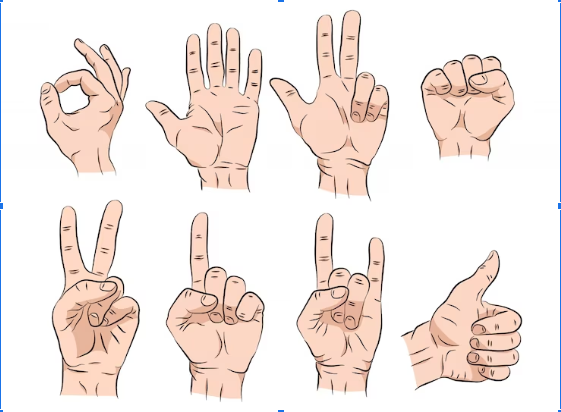Discover the Perfect BSL Course for Beginners

Are you fascinated with the rich tapestry of sign language and eager to embark on a journey towards fluency in British Sign Language (BSL)? If you’re standing at the threshold of this captivating world, wondering which BSL course is ideal for a beginner like yourself, you’ve come to the right place. This comprehensive blog post will guide you through selecting a course that not only fits your learning style but also sets you up for success on your path to becoming a proficient signer.
Whether you seek to connect with the Deaf community, have a personal interest, or have professional reasons for learning BSL, beginning with the right course is crucial. Let’s sign in!
Understanding British Sign Language
Before diving into courses, it’s essential to grasp what BSL is all about. BSL is a visual-gestural language with its syntax and grammar, used primarily by the Deaf community in the United Kingdom. Unlike English, it isn’t simply a ‘signed version’ of the spoken language – it’s a distinct and fully-fledged language in its own right. So, learn it through Online Signature BSL Level 1 Ideal Course for beginners.
Starting Your BSL Journey: Key Considerations
Finding a suitable course as a beginner might feel overwhelming, but several factors can help narrow down the options:
- Course Accreditation: Ensure the course is accredited by a recognized BSL institution, guaranteeing that the curriculum meets set educational standards.
- Qualified Instructors: Look for programs that employ experienced Deaf BSL tutors, as they can offer invaluable insights and authentic interactions.
- Learning Objectives: Different courses may focus on various aspects of BSL. Consider what you wish to achieve – is it basic conversational skills, an understanding of Deaf culture, or a foundation for advanced study?
- Course Format: Do you prefer in-person classes, online learning, or a blended approach? Your lifestyle and learning preferences will dictate the best format for you.
- Interactive Opportunities: Practice is crucial, so choose a course that offers plenty of interactive exercises and chances to engage with the Deaf community.
- Assessment and Feedback: Regular assessment helps track progress, while constructive feedback can guide improvement.
Top Beginner Courses for Aspiring BSL Learners
With an understanding of what to look for, here are a few beginner-friendly BSL courses that can kickstart your learning adventure:
BSL Level 1 Award
- Description: A structured introduction to BSL covering basic vocabulary, grammar, and everyday phrases, often organized over several weeks.
- Ideal For: Those who prefer a paced, classroom-based learning environment.
Online BSL Introduction Courses
- Description: Online modules that you can complete at your own pace, usually consisting of video tutorials and interactive activities.
- Ideal For: Self-motivated learners with limited access to in-person classes.
Intensive BSL Workshops
- Description: Short, concentrated courses designed to immerse you in BSL through intensive sessions, sometimes over a weekend.
- Ideal For: Individuals looking for a quick-start option and are able to commit to a full-time, short-term learning schedule.
Community College Programs
- Description: Often more affordable and flexible, these programs may offer a mix of evening and weekend classes suited for students, working professionals, or retirees.
- Ideal For: Those seeking a community-oriented experience with a slower pace.
BSL for Families
- Description: Specifically designed for families with a Deaf member, these courses focus on communication within the familial context.
- Ideal For: Parents, children, and relatives looking to communicate effectively with Deaf family members.

Enhancing Your Learning Experience
Regardless of the course you choose, enhancing your learning experience should be a priority. Try these additional tips:
- Practice Daily: Even a few minutes of practice every day can significantly contribute to your learning progress.
- Use Technology: Take advantage of apps and online resources to supplement your learning outside of structured course time.
- Engage with the Deaf Community: Attend Deaf events, clubs, or online forums where you can immerse yourself in the language and culture firsthand.
- Reflect and Repeat: Regular self-reflection on your progress and repeating challenging aspects of BSL can help consolidate your skills.

Conclusion
Choosing the right beginner course in BSL is a personal journey influenced by your aspirations, learning style, and practical circumstances. Regardless of the pathway you select, embarking on this learning adventure is the first step toward bridging the gap between hearing and Deaf communities, fostering understanding and inclusivity through the beauty of sign language. Remember, the best course is the one that resonates with you and encourages continuous learning and connection.
Keep practising, and soon, your hands will become a powerful tool for storytelling, expressing emotions, and forging new relationships within the vibrant tapestry of BSL users. Happy signing!

![Photo of [streams]: Menno/Scotland vs Mt. Vernon/Plankinton Live free HS Football Score & REsults 09/09/2022](https://blogspinners.com/wp-content/uploads/2022/09/vxcbcxb-xcb-390x220.jpg)



